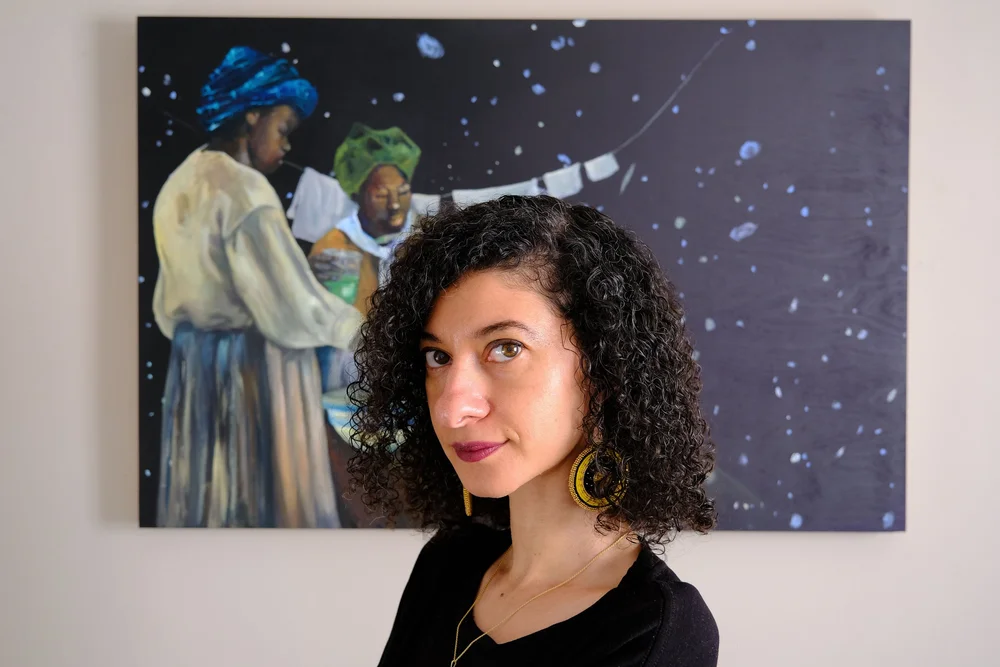Tue Oct 29, 02024, 10:30PM UTC
Dr. Chanda Prescod-Weinstein and Greg Epstein
Tech Agnosticism for a Better Future – with Greg Epstein, Humanist chaplain at Harvard and MIT
.jpeg)
Long Now Boston, Harvard Book Store and the Cambridge Public Library welcome Greg M. Epstein—Humanist Chaplain at Harvard & MIT—for a discussion of his new book Tech Agnostic: How Technology Became the World's Most Powerful Religion, and Why It Desperately Needs a Reformation. He will be joined in conversation by Chanda Prescod-Weinstein—Associate Professor of Physics and Core Faculty Member in Women’s and Gender Studies at the University of New Hampshire.
Dr. Chanda Prescod-Weinstein (she/her) is Associate Professor of Physics and Core Faculty Member in Women’s and Gender Studies at the University of New Hampshire. Her scientific work lives at the intersection of particle physics, cosmology, and astrophysics, and while she is primarily a theoretical researcher, she maintains strong ties to observational astronomy. She was a topical convener for Dark Matter: Cosmic Probes in the Snowmass 2021 process, and she is lead axion wrangler for the NASA STROBE-X Probe Concept Study. She wants to understand the biggest story there is: the origin and history of the universe. She is also a theorist of Black feminist science studies, and in 2022 I launched the Cite Black Women+ in Physics and Astronomy Bibliography.
Dr. Chanda Prescod-Weinstein
Greg M. Epstein serves as the Humanist Chaplain at Harvard University, and also serves the Massachusetts Institute of Technology (MIT) as humanist chaplain and as Convener for Ethical Life at the MIT Office of Religious, Spiritual, and Ethical Life. For nearly two decades, he has built a unique career as one of the world’s most prominent humanist chaplains — professionally trained members of the clergy who support the ethical and communal lives of nonreligious people.
Described as a “godfather to the [humanist] movement” by The New York Times Magazine, Epstein was also named “one of the top faith and moral leaders in the United States” by Faithful Internet, a project coordinated by the United Church of Christ with assistance from the Stanford Law School Center for Internet and Society, for his efforts to bring together atheists, agnostics, and allies, as part of an ancient and ever-evolving ethical tradition that can be called humanism. As Greg believes deeply: in a changing world where faith in humankind has become more difficult to maintain, it is more important than ever to fight for our common humanity, and for each other.
Greg Epstein
Speakers
On Tuesday, Oct 29, 02024, Long Now Boston was proud to co-host a conversation between Greg Epstein, humanist chaplain at Harvard and MIT, and Dr. Chanda Prescod-Weinstein, at the Cambridge Public Library. At this sold-out event, Epstein introduced his book Tech Agnostic: How Technology Became the World's Most Powerful Religion, and Why It Desperately Needs a Reformation and talked about his personal journey and how he came to write this book. Prompted by Dr. Prescod-Weinstein's questions, he talked about the difference between technology writ large and "tech", by which he primarily means social media -- the technology that now binds us together socially, which has traditionally been the domain of religion and other community-building systems. The interviewer asked him about MIT and their military involvement, and how we can reconcile "tech" with the fact that technology as we know it is inexorably tied to the military-industrial complex.
As a humanist chaplain, Epstein discussed the ideas of secular humanism and how our relationship to tech takes the form of a religion: it has forms of worship (the time we spend on our phones), hierarchy, and even "gods" (AI and/or the captains of modern tech industry).
Epstein said that as part of his personal mandate, he had been trying to change the world or make it a better place by creating community and bringing people together at Harvard and MIT. But at a certain point he looked at what Facebook had done and realized that that was doing exactly that, but at scale. Not ethically or responsibly, but it was doing it. So he started to think about what kinds of questions that raises, and that was the genesis of Tech Agnostic.
As a humanist, he thinks it's important to be humble and skeptical of any religion that you are considering becoming a part of, and that applies as much to tech as it does to any traditional religion.
He also talked about a possible AI apocalypse; many religions propose some kind of coming apocalpyse, and certainly in tech there are many people currently worried about, and indeed expecting, an eventual AI "singularity" or apocalpytic outcome.
Overall a very stimulating and thought-provoking discussion! Our great thanks to Epstein and Prescod-Weinstein for a fascinating evening.


.jpg)
